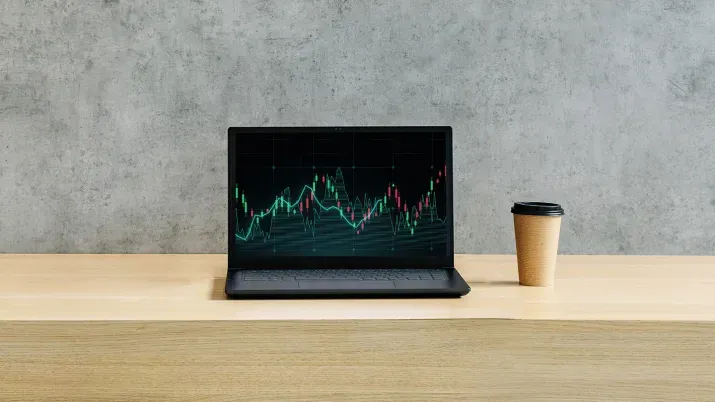Promising Prospects for 2021 – Quality Growth Global Equity Outlook
Quality Growth Boutique
Key Takeaways:
- Investor focus is poised to shift from virus-induced disruptions to the pace of economic healing.
- Changes to consumer behavior and increased competition are greater threats to Big Tech domination than festering regulatory issues.
- The challenging backdrop for consumer staples companies may persist in the near term; however, we do not expect as much share price volatility compared to the early stages of the pandemic.
- New administrations in the US typically have little impact on long-term market returns. However, corporate profits are likely to be bolstered if new fiscal stimulus is approved.
- We remain confident about market prospects in the year ahead for active, high quality growth investors.
COVID-19 gives way to economic healing
Global equity markets are pricing in some light at the end of this pandemic tunnel. Indeed, news in early November about two promising COVID vaccines from Pfizer and Moderna have reinforced investor confidence that the healing process will likely commence in 2021.
To be sure, the recent surge in infections in both the US and Europe suggest that economic risks and heightened market volatility are likely to prevail near term. These virus-induced disruptions, however, have served a useful purpose by accelerating some important business trends, such as the shift to e-commerce, that were already underway.
The risks in following momentum
Momentum characterized global equity returns in 2020, fueled by low interest rates and excess liquidity. However, elevated speculation in parts of the market presents risks to investors.
These risks include a surge in SPAC (Special Purpose Acquisition Company) issuance. SPACs are “blank check” companies that raise billions of dollars but face less regulatory scrutiny and fewer restrictions than traditional IPOs. A raft of new listings also feature companies that are not yet profitable. In addition, large flows of capital into private equity are creating competition for public companies seeking attractive acquisitions. Lastly, excess capital in so-called “green” initiatives has pushed valuations ahead of fundamentals in the ESG space.
The importance of leadership in information technology
The technology sector now accounts for 27% of the S&P 500 Index1, with a small number of companies dominating performance. It is a naturally consolidating space and many leading companies, such as Google, hold quasi-monopolistic positions.
While large IT companies have recently attracted greater regulatory scrutiny, we do not think investors should be concerned from a US perspective. We believe consumer behavior will drive future growth in IT companies and we are closely watching how these companies are adding value for their customers. In China, regulatory restrictions on FinTech lending has risen, potentially inhibiting e-commerce sites that require merchant exclusivity. That said, the biggest risks to the dominant IT players are upstart competition and existing rivals.
There are leading IT companies in Europe that are finding new ways to analyze and process data. For example, US consumers increasingly rely on companies like UK-based Experian, the largest credit bureau, Netherlands-based Waters Corp, an analytical laboratory instrument and software company, and Carfax, a large used cars database that is owned by UK-based IHS Markit.
The resilient appeal of consumer staples
Over the years, we believe there have been many profitable opportunities in the consumer staples sector. While dominant consumer staples franchises have historically provided consistent, reliable earnings growth and protected in declining markets, they have not performed well amidst COVID restrictions this year.
We expect the challenging backdrop for staples to persist during the next few months until a vaccine becomes widely available. However, we do not expect as much share price volatility compared to the early stages of the pandemic and we believe large consumer staples brands with enduring franchises will continue to be resilient longer term.
Politics vs stimulus
A new administration in the US typically has little impact on long-term market returns. However, corporate profit growth, which helps drive equity performance, is likely to be bolstered if new fiscal stimulus is approved.
During the past year, government stimulus has helped to dampen volatility and minimize equity drawdowns. However, monetary policy actions present diminishing returns given that rates are already at or below the zero bound. This is why investors are more receptive to increased government spending.
Finding Growth in Europe
We continue to believe there are opportunities in European companies, despite COVID restrictions, the impending impact of Brexit, and sluggish economic growth. Domestic companies have the capacity to grow faster than anemic local economies particularly if they operate in growing industries or have a disruptive product or service. For example, Cellnex, the largest independent tower company in Europe, is a leader in the fast-growing mobile broadband segment and is also a market consolidator. Additionally, Europe is home to many global businesses, such as luxury companies LVMH and Ferrari, the online payment platform Adyen, and consumer staples stalwarts Unilever and Nestle.
Japan rising
Japanese equities have generated lackluster returns over the past few decades, but have produced solid performance this past year. While there have been broad improvements in corporate productivity, Japanese companies continue to trail their US and European peers since progress is slow. However, some companies are pulling ahead in corporate governance, such as Olympus and brewer Asahi. We believe active managers can now find quality opportunities in Japan.
Understanding risks and opportunities in Emerging Markets
The IMF is forecasting that large emerging market economies will recover faster than developed economies in 2021. That said, we continue to believe investors should focus more closely on companies than on the macro environment. Asian economies have substantially evolved in recent years, and now present a more attractive range of companies to invest in. For example, many Asian internet businesses retain dominant positions and have leading roles in supply chains, such as Taiwan Semiconductor Manufacturing Company (TSMC).
Some EM companies in the financials sector use the latest technologies to better serve their customers, improve efficiency, and are therefore less vulnerable to disruptors. For example, by embracing technological improvements, India’s HDFC Bank and Kotak Mahindra Bank have become market leaders.
Strong franchises are also prospering in the consumer space in many EM countries. Walmex, the Walmart of Mexico, is dominant in traditional, offline retail. However, it expanded market share during COVID with an online platform. We believe through its omni-channel offering, Walmex is poised for continued growth in 2021. In the health care sector, we believe Brazilian health care company NotreDame Intermedica is a quality company focused on models that can improve efficiency and help deliver better services for their customers, despite investor concerns about current political leadership.
Promising prospects in the year ahead
After a year heavily impacted by the effects of COVID-19, there could be more uncertainty to come. Changes in interest rates, political disruption and idiosyncratic risks could shake markets and companies. But as we look to 2021, we remain confident about market prospects for active, high quality growth investors.
1. As of 31 October 2020








